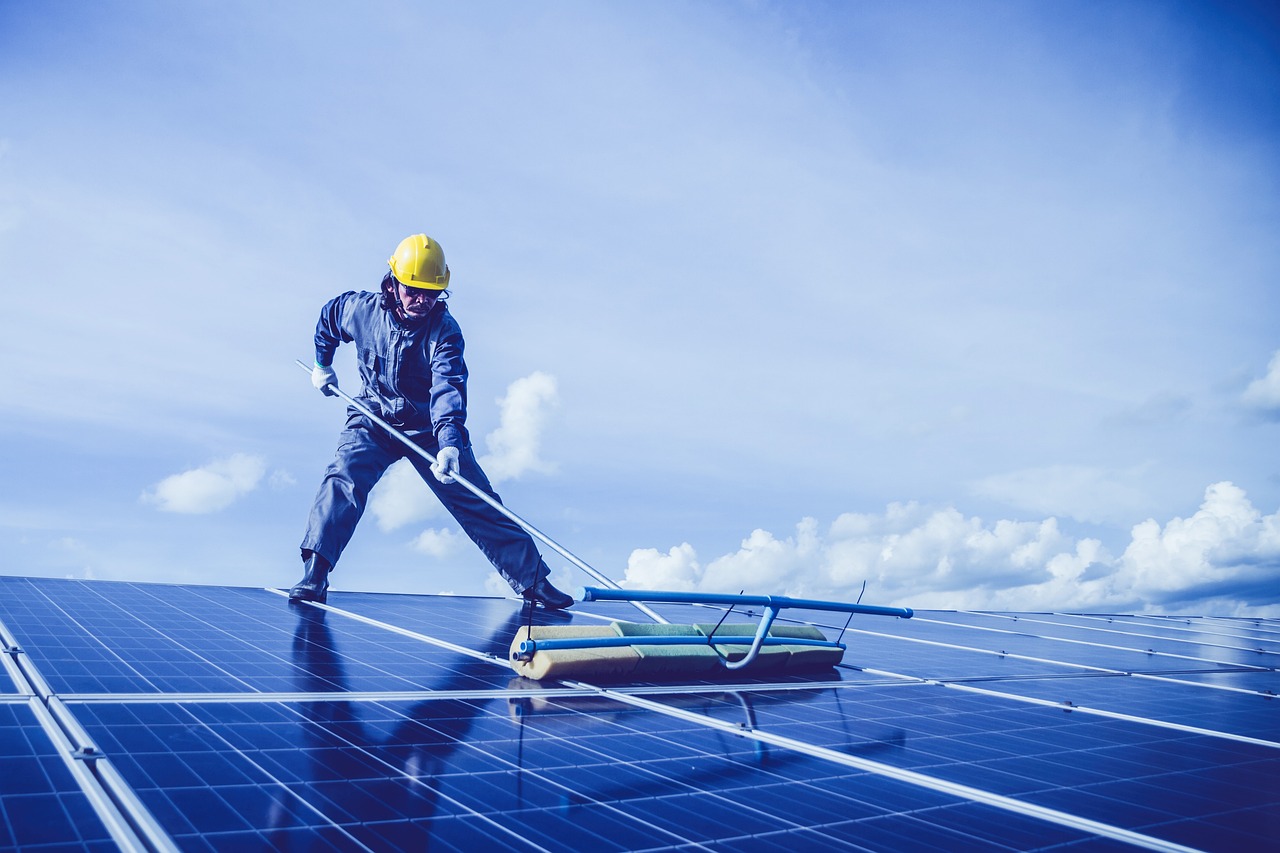What Happens if Your Power Goes Out and You Have Solar Panels?
If you have a standard solar system without a battery backup solution, then you could still experience blackouts if the grid goes down. Home solar works with the grid. It isn’t a completely independent system.
If you want the best protection from blackouts on Long Island, you could consider a solar panel installation with a battery backup system. This would provide backup power and potentially improve your long-term savings.
How Solar Panels Work
Solar panels generate electricity through a chemical reaction when exposed to sunlight. Panels power your home during the day, and any excess energy is sent to the grid (unless you have a solar battery, which is charged first).
- Solar reduces your grid consumption to lower your electric bill.
- Excess production sent to the grid spins your meter in reverse.
- Under New York’s Net Metering Program, you can generate credits on your account from the energy you export. This helps cover evenings and times of the year when solar production is low.
- Solar panels last an average of 25 years, but may continue to produce some electricity for 30 years or longer.
- The average solar system without a battery backup pays for itself in 8 to 10 years. All the savings you generate after the payback period are money back in your pocket.
What Happens to Solar When the Grid Goes Down?
There are two potential scenarios for your solar home when the grid goes down.
- If you don’t have a solar battery, your system will shut down to protect the grid. You will lose electricity during a blackout.
- If you have a solar battery, it can power your home during a blackout. The total backup time depends on the size of your battery system and the outlets or appliances it is connected to.
If you want full redundancy, similar to grid electricity with a traditional generator, then solar panels with a battery backup system would be ideal.
Do I Need a Solar Backup Battery?
While you don’t need a solar backup battery to enjoy the benefits of solar, a battery system can deliver enhanced savings and reliability.
- A battery backup system like a Tesla Powerwall (available through Power Solutions) stores excess energy for use in the evenings or whenever your consumption exceeds your solar panel output.
- A solar battery will reduce your electricity bills, but it increases the upfront cost of a solar installation.
- A solar battery can pay for itself by improving your savings, with an average payback period of 5 to 10 years on Long Island.
It’s important to consider the benefits of a solar backup battery in the context of your energy needs. Power Solutions offers detailed consultations and cost/benefit analysis for a clear understanding of costs and long-term benefits before you commit to the installation.
Frequently Asked Questions
Do Solar Panels Work at Night?
Solar panels shut down at night. Your home will use electricity from the grid in the evenings. You can enjoy more energy independence by installing a solar battery backup system with an experienced contractor. Your contractor will design your Long Island solar installation for maximum savings.
Can You Live Off Solar Alone?
You can’t live off solar alone if you want 24/7 electrical coverage. Solar works with the grid, but will significantly reduce the amount of electricity you buy from PSEG Long Island. 100% solar homes are rare and are typically limited to smaller holiday homes and remote homes.
Get a Detailed Solar Estimate from Power Solutions
It’s important to choose a Long Island solar installer with the experience and tools to design a solution that works.
Power Solutions can help maximize your savings with an efficient solar system. We can protect your home from power outages by integrating a battery energy storage system. Learn about your options, cost, and long-term savings, starting with your free Long Island solar estimate today.





